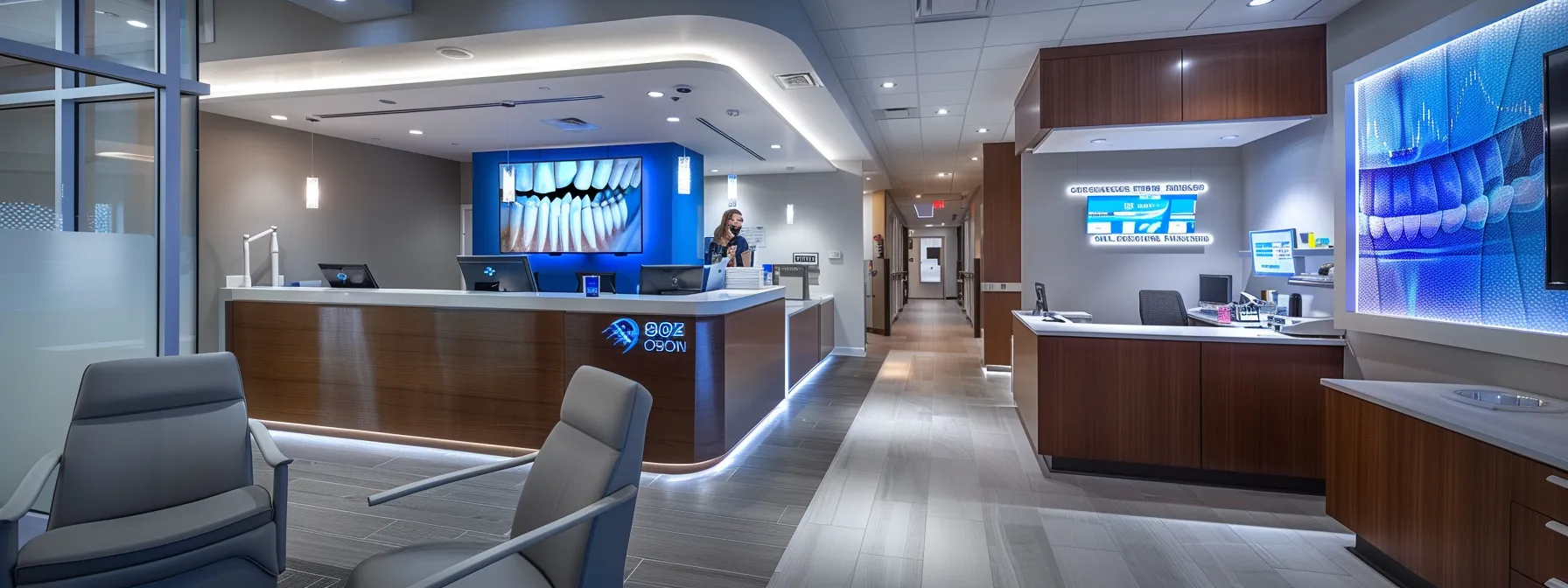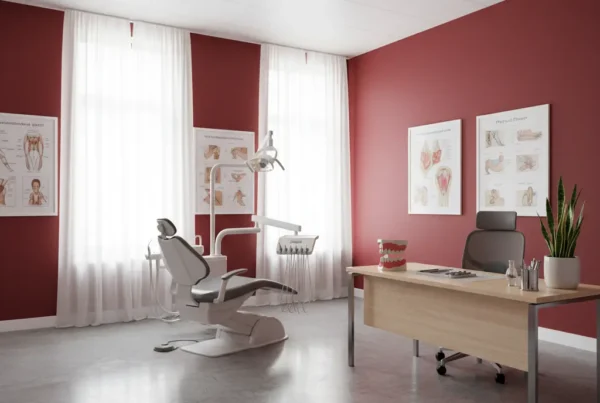Are you experiencing jaw pain or headaches? These could be signs of bruxism or TMJ disorders. This article explores the connection between these conditions and offers practical strategies to alleviate discomfort. You’ll learn about professional treatment options, lifestyle changes for long-term jaw health, and preventive care techniques. By the end, you’ll have the knowledge to take control of your jaw health and improve your overall well-being.
Key Takeaways
- Bruxism and TMJ disorders are closely linked, causing dental issues and headaches
- Regular dental checkups are crucial for early detection and prevention of jaw-related problems
- Stress management techniques can significantly reduce jaw clenching and grinding
- Custom-fitted night guards protect teeth from damage caused by nighttime grinding
- Open communication with healthcare providers ensures personalized and effective treatment for jaw disorders
Understand the Connection Between Bruxism and TMJ Disorders
Bruxism and TMJ disorders often go hand in hand, affecting dental health and causing headaches. This section explores their symptoms, causes, and the role of stress and sleep. It also examines how dental care impacts TMJ issues. Understanding these connections helps patients and physicians work together to find effective treatments, protecting teeth and jaw bones over miles of smiles.
Recognize the Symptoms of Bruxism and TMJ Issues
Recognizing the symptoms of bruxism and TMJ issues is crucial for early intervention and effective treatments. Common signs include jaw pain, headaches, and worn-down teeth. Patients may experience difficulty opening their mouth or hear clicking sounds when chewing. These symptoms often lead to various treatments, including physical therapy and the use of a dental splint. Insurance coverage for these conditions varies, so patients should check their policies:
Identify Common Causes of Jaw Clenching and Grinding
Jaw clenching and grinding often stem from stress, anxiety, and sleep disorders. A burlington dentist or general dentist can identify these issues during routine check-ups. Orthodontics may also play a role, as misaligned teeth can contribute to bruxism. Some individuals develop these habits due to breathing difficulties, which a dental professional can assess. Community awareness about these causes helps people seek appropriate care and prevent long-term jaw problems.
Understand the Relationship Between Stress and Jaw Tension
Stress often manifests physically, causing muscle tension in the jaw and leading to bruxism and TMJ disorders. The American Dental Association recognizes this connection, noting that stress-induced jaw clenching can result in worn teeth, requiring crowns or other dental work. Chronic stress may also contribute to snoring and sleep apnea, exacerbating jaw issues. In severe cases, surgery might be necessary to address persistent TMJ problems. Dentists recommend stress-reduction techniques and proper dental care to alleviate these conditions and promote overall oral health.
Explore the Impact of Dental Health on TMJ Disorders
Dental health plays a crucial role in managing TMJ disorders. Regular evaluations help dentists identify issues early, potentially preventing the need for extensive treatments like veneers. Proper oral hygiene and care of dental tissues can reduce inflammation that contributes to TMJ problems. For some patients, manual therapy techniques performed by a dentist or physical therapist can alleviate jaw discomfort. Patients experiencing persistent jaw pain or clicking sounds should schedule an appointment with their dentist for a comprehensive assessment and personalized treatment plan.
Learn About the Role of Sleep in Bruxism
Sleep plays a crucial role in bruxism, affecting both children and adults. The Academy of General Dentistry emphasizes the importance of proper sleep hygiene in managing teeth grinding. During sleep, the skull and jaw muscles relax, but stress or sleep disorders can disrupt this process, leading to clenching. Pediatric dentistry experts often recommend monitoring children’s sleep patterns to identify potential bruxism early. For adults, dental implants may be affected by nighttime grinding, requiring special care and protection:
Implement Practical Strategies to Alleviate Jaw Pain

Alleviating jaw pain involves various strategies that target the muscles, joint, and overall range of motion. From gentle exercises and relaxation techniques to heat or cold therapy, dietary adjustments, and the use of jaw supports, these methods aim to reduce discomfort and prevent further injury. By implementing these practical approaches, individuals can effectively manage pain and improve jaw function.
Try Gentle Jaw Exercises to Relieve Tension
Gentle jaw exercises can effectively relieve tension and alleviate pain associated with bruxism and TMJ disorders. These exercises help improve jaw mobility and reduce headaches, back pain, and ear discomfort. Patients should consult their dentist before starting any exercise routine, especially if they have recently undergone teeth whitening or other dental procedures. Simple exercises like controlled jaw opening and closing, side-to-side movements, and gentle massage can significantly reduce muscle tension and improve overall jaw function.
Incorporate Relaxation Techniques to Reduce Stress
Incorporating relaxation techniques is a key part of preventive care for those dealing with TMJ disorders (TMJD). Dr. Brenner might recommend practices like deep breathing or progressive muscle relaxation to reduce stress and jaw tension. Some patients find relief through alternative medicine approaches, such as acupuncture or meditation. These methods, combined with the highest quality dental care, can significantly improve jaw comfort and overall well-being.
Use Heat or Cold Therapy for Pain Management
Heat or cold therapy offers effective pain management for TMJ-related discomfort. Applying a warm compress to the jaw can relax tense muscles and improve blood flow, aiding in stress management. Cold packs, on the other hand, can reduce inflammation and numb pain, particularly useful after dental procedures. Patients often give high ratings to these simple yet effective methods, which can alleviate not only jaw pain but also associated neck discomfort. Dentists may recommend alternating between heat and cold treatments, tailoring the approach to each tooth and patient’s specific needs. Some dental offices even offer these therapies as part of their payment plans, recognizing their value in comprehensive care.
Adjust Your Diet to Minimize Jaw Discomfort
Adjusting one’s diet can significantly minimize jaw discomfort for those suffering from bruxism or TMJ disorders. Family medicine practitioners often recommend softer foods that require less chewing, reducing strain on the jaw muscles. Patients seeking cosmetic dentistry treatments in Burlington can request appointments to discuss dietary modifications that support jaw health. A well-planned diet not only aids in pain management but also complements other treatments, promoting overall oral wellness:
- Choose softer foods like soups, smoothies, and cooked vegetables
- Avoid hard or chewy foods that strain the jaw
- Cut food into smaller pieces to reduce the need for extensive chewing
- Stay hydrated to maintain proper muscle function
- Consider supplements that support joint health, as recommended by a healthcare professional
Consider Jaw Supports or Splints for Better Alignment
Jaw supports and splints offer effective solutions for patients struggling with TMJ disorders and bruxism. The University of Connecticut’s dental center recommends these devices to improve jaw alignment and reduce strain on the TMJs. Splints can alleviate shoulder discomfort often associated with jaw issues and promote better sleep quality. Dentists carefully design these supports to fit each patient’s unique jaw structure, ensuring optimal comfort and effectiveness.
Explore Professional Treatment Options for TMJ Disorders

Professional treatment options for TMJ disorders offer hope for those struggling with jaw pain. From consulting specialized dentists to exploring physical therapy and medication, patients have various avenues for relief. Alternative therapies and surgical interventions are also available for severe cases. Understanding these options helps patients make informed decisions about their jaw health and schedule appropriate care, including endodontics or sedation if needed. A comprehensive approach can lead to improved jaw function and a brighter smile.
Consult With a Dentist Specializing in TMJ Issues
Consulting a dentist specializing in TMJ issues offers patients comprehensive care for jaw-related problems. These experts possess in-depth knowledge of prosthodontics and can provide tailored treatments, including clear aligners, to address jaw misalignment. They also examine the cheek muscles and surrounding structures to ensure a holistic approach to TMJ management. While some may view seeking specialized care as an advertisement for additional services, it often proves crucial for effective diagnosis and treatment of complex jaw disorders.
Learn About Physical Therapy Techniques for Jaw Relief
Physical therapy techniques offer effective relief for jaw discomfort, promoting better oral health and gum care. These methods, often recommended by primary care providers, incorporate advanced technology to target specific jaw muscles and improve mobility. In Bristol, dental professionals utilize a range of exercises and manual therapies to alleviate TMJ pain, helping patients maintain healthy jaws without invasive procedures.
Inquire About Medications to Manage Pain
Dentists with advanced dental degrees enable patients to manage TMJ pain through various medications. These professionals educate patients on options that reduce inflammation and protect teeth. Common treatments include over-the-counter pain relievers, muscle relaxants, and anti-inflammatory drugs. For severe cases, dentists might prescribe stronger medications or consider alternatives like botox injections:
- Nonsteroidal anti-inflammatory drugs (NSAIDs) for pain and swelling
- Muscle relaxants to ease jaw tension
- Tricyclic antidepressants for chronic pain management
- Corticosteroid injections for severe inflammation
- Botox as a potential treatment for persistent jaw clenching
Understand the Benefits of Alternative Therapies
Alternative therapies offer patients additional options for managing TMJ disorders, complementing traditional dental treatments. Dr. Brenner’s patients can explore techniques like acupuncture and biofeedback to alleviate jaw pain and reduce fear associated with dental visits. These approaches, combined with the practice’s extensive experience in TMJ care, provide a holistic treatment experience. Patients interested in alternative therapies can contact the office to discuss how these methods might benefit their specific condition.
Adopt Lifestyle Changes for Long-Term Jaw Health

Adopting lifestyle changes can significantly improve long-term jaw health for those dealing with bruxism and TMJ issues. From prioritizing sleep hygiene to maintaining good posture, practicing mindfulness, engaging in physical activity, and monitoring caffeine and alcohol intake, these strategies complement regular dental care and family dentistry visits. By addressing stress and habits like nail biting, patients can reduce jaw strain and support overall oral wellness.
Prioritize Sleep Hygiene to Avoid Jaw Strain
Prioritizing sleep hygiene can significantly reduce jaw strain associated with bruxism and TMD. Patients with malocclusion often benefit from establishing a consistent sleep schedule and creating a relaxing bedtime routine. Dentists may use laser treatments to address jaw issues, but proper sleep habits can prevent the need for such interventions. Regular feedback from patients helps dentists tailor treatment plans and monitor progress in managing jaw-related diseases.
- Maintain a consistent sleep schedule
- Create a relaxing bedtime routine
- Use a supportive pillow to align the jaw
- Avoid screen time before bed
- Practice relaxation techniques to reduce nighttime teeth grinding
Maintain Good Posture to Support Jaw Alignment
Maintaining good posture supports proper jaw alignment, benefiting patients undergoing therapy for TMJ disorders. Dental professionals often recommend exercises to improve posture as part of a comprehensive treatment plan, which may include a chiroprator. By aligning the spine and neck, patients can reduce strain on the jaw muscles, potentially decreasing the need for extensive dental work. Some dental offices even incorporate posture assessments into their policy for TMJ management, recognizing its importance in overall oral health.
Practice Mindfulness Techniques to Reduce Clenching
Practicing mindfulness techniques can significantly reduce jaw clenching associated with bruxism and TMJ disorders. Dentists often recommend incorporating these practices into daily oral hygiene routines. By focusing on relaxation and body awareness, patients can minimize unconscious chewing habits and reduce the urge to clench or grind ice. These techniques not only support jaw health but also promote overall well-being:
- Deep breathing exercises to release jaw tension
- Progressive muscle relaxation, starting from the jaw
- Mindful eating practices to promote conscious chewing
- Guided imagery to visualize a relaxed jaw
- Body scans to identify and release tension in the face and neck
Engage in Regular Physical Activity to Manage Stress
Regular physical activity helps manage stress, which can significantly reduce jaw clenching and grinding. Patients who incorporate exercise into their routines often report reduced TMJ symptoms and improved overall oral health. Dentists recommend activities that promote relaxation and reduce tension in the jaw and neck muscles:
- Yoga for stress relief and muscle relaxation
- Swimming to improve posture and reduce jaw tension
- Walking or jogging to release endorphins and lower stress levels
- Tai Chi for balance and mindful movement
- Stretching exercises focused on the neck and shoulders
Monitor and Avoid Caffeine and Alcohol Intake
Monitoring and reducing caffeine and alcohol intake can significantly impact jaw health for those with bruxism or TMJ disorders. These substances often increase muscle tension and stress, leading to more frequent teeth grinding and clenching. Patients should consider limiting their consumption, especially in the evening, to promote better sleep and reduce nighttime jaw activity. Dentists may suggest keeping a log of caffeine and alcohol intake to identify patterns and make informed decisions about consumption habits.
Educate Yourself on Preventive Care for Bruxism

Preventive care for bruxism involves regular dental checkups, using mouthguards during sleep, and avoiding non-food items. Staying informed about new research on jaw disorders and maintaining open communication with healthcare providers are crucial. These strategies help protect teeth, reduce strain, and ensure comprehensive management of bruxism and TMJ issues.
Regular Dental Checkups to Monitor Oral Health
Regular dental checkups play a crucial role in monitoring oral health and preventing bruxism-related complications. During these visits, dentists can detect early signs of tooth wear, jaw misalignment, or muscle tension associated with teeth grinding. They may recommend custom-fitted night guards or suggest lifestyle changes to reduce stress and protect teeth from further damage. These routine examinations also allow for timely interventions, potentially saving patients from more extensive treatments in the future.
Use Mouthguards During Sleep to Protect Teeth
Using mouthguards during sleep is an effective way to protect teeth from the damaging effects of bruxism. Custom-fitted night guards, prescribed by dentists, provide a barrier between upper and lower teeth, reducing wear and tear caused by grinding. These devices also help distribute the force of clenching more evenly across the jaw, potentially alleviating TMJ discomfort. Patients should clean their mouthguards regularly and replace them as recommended by their dental professional to ensure optimal protection:
- Choose a custom-fitted mouthguard for best results
- Clean the device daily to maintain hygiene
- Replace mouthguards as advised by the dentist
- Wear consistently for maximum benefit
- Report any discomfort or fit issues promptly
Avoid Chewing Non-Food Items to Reduce Strain
Avoiding non-food items helps reduce strain on the jaw and teeth, crucial for preventing bruxism and TMJ issues. Patients should refrain from chewing on pens, fingernails, or ice, as these habits can exacerbate jaw tension and damage tooth enamel. Instead, they can opt for sugar-free gum or healthy snacks when feeling the urge to chew, promoting better oral health and reducing the risk of jaw-related problems.
Stay Informed About New Research on Jaw Disorders
Staying informed about new research on jaw disorders helps patients make educated decisions about their oral health. Dental professionals recommend following reputable dental journals and attending patient education seminars to learn about the latest treatments and prevention strategies for bruxism and TMJ issues. By keeping up with current studies, individuals can discuss new options with their dentist and potentially benefit from innovative approaches to managing jaw-related problems.
Cultivate Awareness About Jaw Health in Daily Life

Cultivating awareness about jaw health in daily life is crucial for managing bruxism and TMJ disorders. This section explores how to notice jaw tension during activities, create stress-managing boundaries, encourage family discussions on oral health, share experiences with others facing similar issues, and use educational resources to stay informed. By incorporating these practices, individuals can take proactive steps towards healthier jaws and overall well-being.
Notice Jaw Tension Throughout Daily Activities
Patients can benefit from paying attention to jaw tension throughout their daily activities. By noticing when they clench or grind their teeth, individuals can take steps to relax their jaw muscles and reduce strain. This awareness can help prevent headaches, tooth wear, and other symptoms associated with bruxism and TMJ disorders. Dentists often recommend patients keep a log of when they experience jaw tension to identify triggers and develop effective management strategies:
Share Your Experience With Others Facing Similar Issues
Sharing experiences with others facing similar jaw health issues can provide valuable support and insights. Patients often find comfort in connecting with individuals who understand their challenges, exchanging tips on managing pain and stress. These shared experiences can lead to the discovery of new coping strategies and treatment options, empowering patients to take a more active role in their jaw health management. Support groups, both online and in-person, offer safe spaces for discussing bruxism and TMJ concerns:
Use Educational Resources to Stay Informed
Utilizing educational resources helps patients stay informed about bruxism and TMJ disorders. Dental professionals recommend accessing reputable websites, attending workshops, and reading patient-friendly publications to learn about the latest treatments and self-care techniques. These resources can provide valuable insights into jaw health, empowering individuals to make informed decisions about their care and engage more effectively with their dental team. Patients can benefit from exploring a variety of educational materials:
- Online dental health portals with expert articles
- Educational videos demonstrating jaw exercises
- Podcasts featuring dental professionals discussing TMJ issues
- Brochures from dental offices explaining bruxism management
- Interactive apps for tracking jaw symptoms and relaxation techniques
Conclusion
Understanding the connection between bruxism and TMJ disorders is crucial for maintaining healthy jaws and overall oral well-being. By implementing practical strategies, exploring professional treatment options, and adopting lifestyle changes, individuals can effectively manage jaw pain and prevent long-term complications.
Regular dental check-ups, using mouthguards, and staying informed about new research play vital roles in preventive care for bruxism. Cultivating awareness about jaw health in daily life and sharing experiences with others facing similar issues can lead to better management of these conditions and improved quality of life.
Book Your Consultation Today!
Dr. Bethaney B. Brenner DMD
8 Milford St, Burlington, CT 06013





